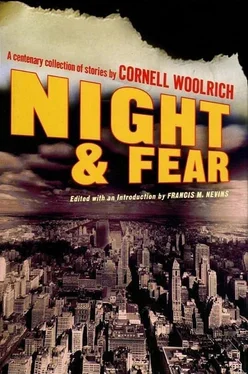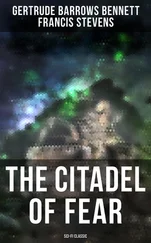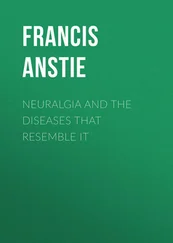I hadn’t seen him (she said) in three years. We were engaged before he left the States. He came out to work for one of the big oil companies here. I was to follow just as soon as he’d saved up enough money to send for me. Then, when he should have had enough laid aside, he started putting me off. Finally I got tired waiting, booked my own passage, came out without letting him know. I didn’t tell him I was arriving until night before last when I sent him a cable from the ship. He met me yesterday at Yokohama.
He’d changed. He wasn’t glad to see me, I could tell that right away. He was afraid of something. Even down there on the pier, while he was helping me to pass through the customs-inspection, he kept glancing nervously at the crowd around us, as if he was being watched or something.
When we got here it was even worse. He didn’t seem to want to tell me where he lived. He wouldn’t talk about himself at all. I’d been sending my letters to the company-office, you see... I couldn’t make head or tail of it. This morning when I woke up there was a piece of white goods tied around the knob of my door — like a long streamer or scarf. When I happened to mention it to him later on, he turned the ghastliest white. But I couldn’t make him talk about that, either.
(Hollinger explained: “White’s the color of mourning in this country. It means the same thing as crepe.”)
I know that now (she went on)... I’ll spare you all the little details. My love for him curled up, withered, died. I could feel that happening. You can’t love a man that’s frightened all the time. Anyway, I can’t. Tonight we were sitting in one of the big modern restaurants on the Ginza. I happened to say: “Bob, this is deadly dull — can’t you take me to one of the more exciting places?” He didn’t seem to want to do that either — as though he were afraid to stray very far off the beaten path.
We argued about it a little — the girl who was waiting on us must have heard. Because not long after that he was called to the phone and as soon as his back was turned, this waitress came up to me. She hadn’t been able to help overhearing, she said. If I wanted to see the real sights, I ought to get him to take me to the Yoshi. The House of Stolen Hours, she said, was a very agreeable place. Then Bob came back. And although he’d looked scared when he went to the phone, he was all right now. He said there’d been a mistake — no call for him at all.
It never occurred to me that there could be anything prearranged, sinister, about this sequence of events — that it might be a trick to get us in an out-of-the-way place where we couldn’t easily get help.
Like a fool. I didn’t tell Bob where I’d found out about the Yoshiwara. I let him think it was my own idea. I had a hard time talking him into taking me there, but finally he gave in.
We were shown into one of the little rooms and told just where to sit, to enjoy the entertainment—
(Hollinger interrupted: “There’s something, right there. What difference would it have been where you sat, when you just unroll mats on the floor? Who told you?”)
The manager, I guess it was (she answered). He spread out one mat for me, pointed to it, and I sat down. Then he spread the one for Bob opposite mine, instead of alongside it. My back was to one partition, his to the other. They spread the tea things between us. Mine tasted bitter, but I thought maybe that was on account of drinking it without cream and sugar.
There was a lantern shining right in my face. My eyes felt small, like pinheads, and the lantern light dazzled them. I began to get terribly sleepy. I asked Bob to change places with me, so I’d have my back to the light. He sat where I’d been, and I moved over to his side.
Then — the — thing happened — a minute later. Even I saw a faint gleam of light, shining through the screen from the next compartment behind Bob’s back — as though someone had opened a slide and gone in there. A big looming shadow hovered over him, like a genie let out of a bottle in the Arabian Nights. Know what I mean? Sort of cloud like, blurred, bigger than life-size. Then it vanished, and the screen went blank. I was already feeling so numb, with a ringing in my ears. I couldn’t be sure I’d really seen it.
Bob never made a sound. I thought he was bending over to pick up his cup at first, but he never straightened up again. Just kept going lower and lower. I thought blearily, “What’s he putting his head all the way down like that for, is he going to try to drink it without using his hands?” Then the cup smashed under his chin and he just stayed that way. And then I could see this ivory knob sticking out between his shoulder blades, like... like a handle to lift him by. And red ribbons swirling out all around it, ribbons that ran! And the last thing I saw was a slit — a two or three-inch gash in the paper screen behind him. My own head got too heavy to hold up and I just fell over sideways on the floor and passed out.
But I know, I know I was sitting on the opposite side of the room from him, I know I didn’t touch him—
When I opened my eyes, I was still there in that horrible place, in the flickering lantern light, and he was dead there opposite me, so I knew I hadn’t dreamed it. The dream was from then on, until I met you. A nightmare.
The slide was just closing, as though someone had been in there with me. I struggled up on one elbow. There was a weight on my hands, and I looked down to see what it was, and there was the knife! The blood-smeared blade was resting flat across the palm of one, the fingers of the other were folded tight around the ivory hilt. There was blood on the front of my dress, as though the knife had been wiped on it.
(“That’s the symbol of transferring the guilt of the crime to you,” he told her.)
The slide was shoved back, as though they’d been timing me, waiting for me to come to before breaking in and confronting me. The manager came in alone first. He flew into a fury. The way he kept yelling at me — it was awful. I couldn’t think or say anything at all. He pulled me up by one arm and kept bellowing into my face: “You kill! You kill in my house! You make me big disgrace — you make me lose face before customers!”
I tried to tell him that Bob had been stabbed through the paper screen from the next compartment, and when I pointed to where the gash had been — it was gone! The paper was perfectly whole.
He kept pointing to the blood on my dress, the knife at my feet, kept shaking me back and forth like a terrier. Finally he stamped out to call the police. That was my only chance. I got up and ran, I ran the other way, toward the back. I couldn’t find my way out, I thought I’d go mad there in that place with fright and horror, but — I’d heard your voice when we first went in, saying “Here’s looking at you, kids!” I knew there was an American somewhere under the same roof, if I could only find him—
“That’s the story, Hollinger. And here I am, and here you are.”
“Not on your life, lady,” he grinned, getting up and shoving his chair back. “Here you are, maybe, but I’m on my way back there, to do a little housecleaning.” He cupped his hands, blew into them, rubbed them together like a kid going to a circus.
“But they know you helped me get away. They must be looking for you by this time. If I let you go back there again—”
“Sure they know. And sure they’re looking for me. But that’s the one place they’re not looking for me. Don’t you see that? I’m going back there and find out what happened to that slashed paper. The first lesson in that detective book said that when evidence either for or against a suspect disappears from the scene of the crime, look for collusion. First I thought that was some kind of a train smash-up, but one of the officers on the battle-wagon told me it means people getting together to put something over on somebody. You say you saw a slit in the paper. When you came to it was gone. The answer is there’s a trick somewhere. Maybe the manager is in on it. Because I don’t see how they could do that in his house without his knowing it.
Читать дальше












